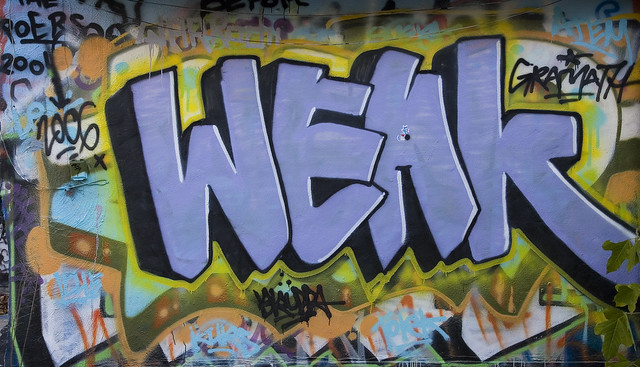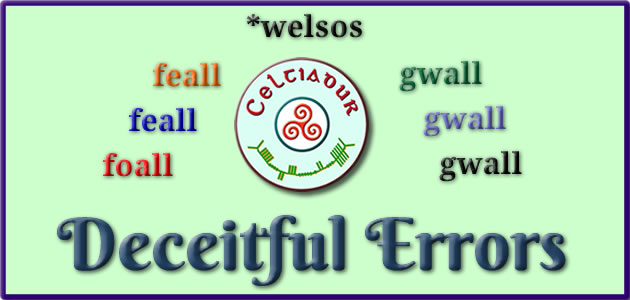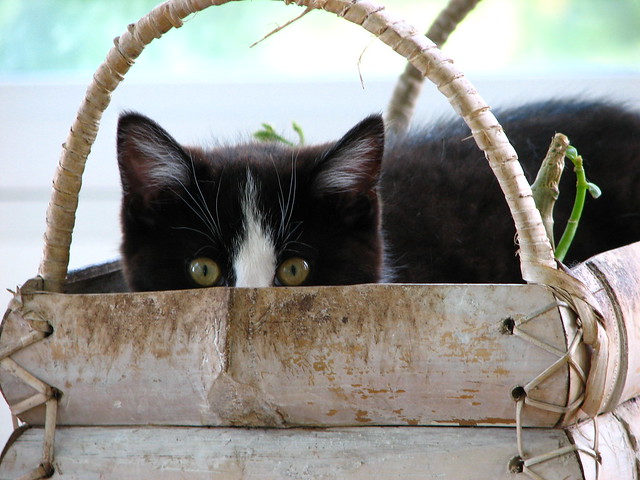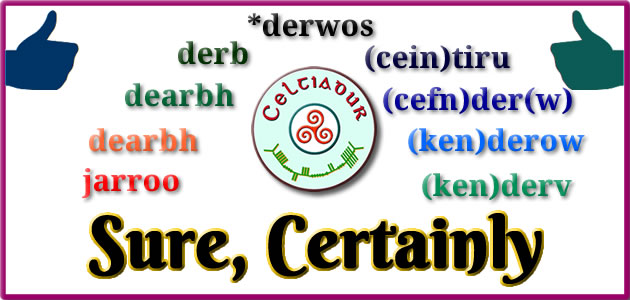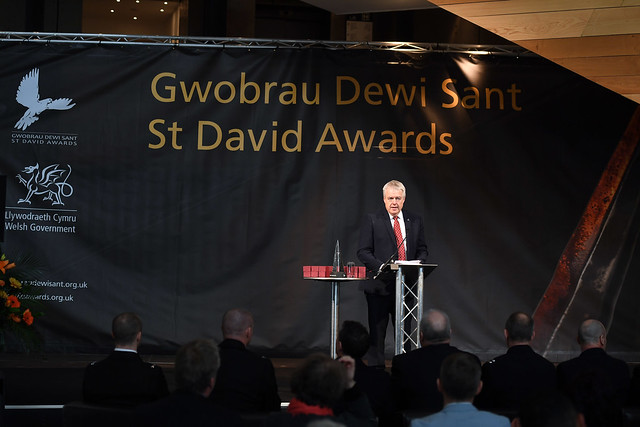Words for face, honour and related things in Celtic languages.
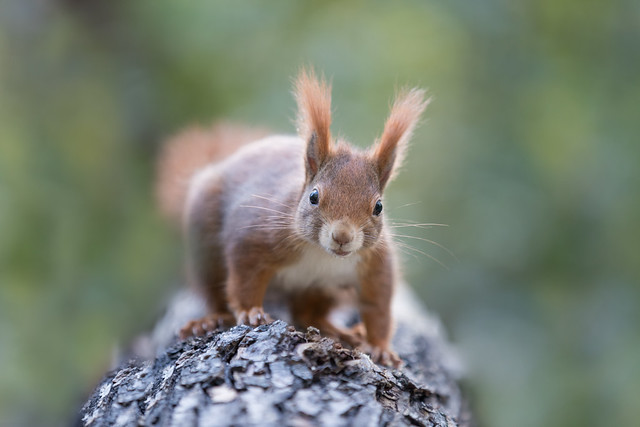
Words marked with a * are reconstructions.
| Proto-Celtic |
*gnūstis = face |
| Old Irish (Goídelc) |
gnúis [ɡnuːsʲ] = face |
| Middle Irish (Gaoidhealg) |
gnúis = face, countenance, disc (of sun or moon), aspect, kind, form, species
dognúisach = ill-featured, ill-favoured |
| Irish (Gaeilge) |
gnúis [ɡn̪ˠuːʃ/ɡɾˠuːʃ] = face, mien, countenance, sour expression, frown, aspect, kind, form
gnúiseach = well-favoured, good-looking.
gnúiseachán = sour-faced person.
gnúisgheal = bright-faced
gnúis-searbh = sour-faced |
| Scottish Gaelic (Gàidhlig) |
gnùis [gruːʃ] = face, countenance, visage
gnùis-dhreach = aspect
gnùis-bhrat = veil
samhla-gnùis = smiley ☺️, emoticon
maise-gnùis = cosmetics
ruadhadh-gnùis = blush |
| Manx (Gaelg) |
grooish = countenance, visage, aspect
grooish-volley = deceit, deceive
geyre-ghrooishagh = sharp-faced
sharroo-ghrooishagh = vinegar-faced |
| Middle Welsh (Kymraec) |
gnis = jaw, chin, countenance, face |
| Welsh (Cymraeg) |
gnis [miːl] = jaw, chin, countenance, face
gnisiaf, gnisio = to low, neigh, sigh, pant, groan, grumble |
| Cornish (Kernewek) |
greuv = face, front |
Etymology: from the Proto-Indo-European *ǵneh₃- (to recognise, know) [source]. Words from the same roots include cognition, cunning, gnome, ignorant, know, noble and uncouth in English [source].
| Proto-Celtic |
*enekʷos = face |
| Old Irish (Goídelc) |
enech = face, honour, reputation |
| Middle Irish (Gaoidhealg) |
enech, ainech = face, front, opposite, against, in opposition to
enechgris = face-flushing
enechlóg = honour-price |
| Irish (Gaeilge) |
oineach = honour, good name, reputation, generosity, hospitality, bounty, favour
oineachúil = generous, good-natured
eineach = face (literary)
eineachlann = ‘honour-price’, proportionate compensation, satisfaction for injury, etc
eineachras = safeguard, protection |
| Scottish Gaelic (Gàidhlig) |
eanach [ɛnəx] = honour, praise |
| Proto-Brythonic |
*ėnib = face |
| Old Welsh |
enep = face |
| Middle Welsh (Kymraec) |
wynep, wyneb, vynep = face
wynebiat, wnepiat, wynepiat = surface, facing, behaviour, aspect
wynebion, wynebyon = surface, scum, froth, |
| Welsh (Cymraeg) |
wyneb [ˈwɨnɛb / ˈwɨnab] = face, countenance, expression, grimace, surface, area, front, side, honour, respect, status, effrontery, impudence, audacity, cheek
wynebaf, wynebu = to face, look towards, confront, oppose, encourage, support
(g)wynebiad = surface, facing, behaviour, aspect
wynebion = surface, scum, froth, head (of beer), cream
(g)wynebol = honourable, worthy, facial, front, facing, promising, favourable, handsome, beautiful |
| Old Cornish |
eneb = face |
| Middle Cornish (Cernewec) |
enep, enap = face, countenance, page (of a book) |
| Cornish (Kernewek) |
enep = face, surface
enebi = to face, oppose
enebieth = opposition |
| Old Breton |
enep = face |
| Middle Breton (Brezonec) |
enep = face, resistance, opposition, opposite |
| Breton (Brezhoneg) |
eneb [ˈẽːnep] = face, opposite, honour
enebenn [e.ˈneː.bɛn] = upper, front, page
eneberezh = opposition
enebiñ = to oppose |
Etymology: from the PIE *h₁enih₃kʷos (face), from animālis (animate, living), from *h₁én (in) and *h₃ókʷs (eye), and okno (window) in Czech [source].
Words from the same roots include eye in English, acs (eye, vision, attention) in Latvian, akis (eye, loop) in Lithuanian [source].
| Proto-Celtic |
*antonos = forehead |
| Old Irish (Goídelc) |
étan = brow, forehead |
| Middle Irish (Gaoidhealg) |
étan, édan = front, brow, forehead
étanán = frontlet |
| Irish (Gaeilge) |
éadan [ˈeːd̪ˠən̪ˠ/ˈeːd̪ˠənˠ] = front, face, flat surface, facet, table, end
éadána = timid, diffident
éadánacht = timidity, diffidence
éadanchlár = fascia |
| Scottish Gaelic (Gàidhlig) |
aodann [ɯːdən̪ˠ] = face, front, dial, side
aodannach [ɯːdən̪ˠəx] = little face, mask, frontispiece
aodann-clò = typeface
aodann-coimheach = mask
aodann creige = rockface, cliff-face |
| Manx (Gaelg) |
eddin = face, facade, feature, front, apron, dial, impudence, cheek
eddinagh = facial |
Etymology: from the Proto-Indo-European *h₂ent- (face, forehead, front). Words from the same roots include answer, end in English, and anë (side, edge, verge, brink) in Albanian [source].
| Old Irish (Goídelc) |
agad [ˈaɣəð] = face, honour, surface |
| Middle Irish (Gaoidhealg) |
agad, aiged = face, countenance, surface, front |
| Irish (Gaeilge) |
aghaidh [əiɟ/ai/əi̯] = face, front, aspect, dial (of clock), obverse (of coin)
aghaidhbhéasach = civil-looking
aghaidh-dhána = bold-faced |
| Scottish Gaelic (Gàidhlig) |
aghaidh [ɤː.ɪ] = face, visage, facade, front, facing, cheek, impudence, nerve
aghaidheachd [ɤː.ɪjəxg] = resistance
aghaidhich = oppose, face, confront, affront
aghaidhichte = opposed, opposing, fronting, facing, confronted |
| Manx (Gaelg) |
oai = countenance
oaie = dial, exposure, facade, face, facial, front, frontage
oaieagh = blasphemous, sepulchral |
Etymology: uncertain, possibly related to the Old Irish aigid (to drive), from Proto-Celtic *ageti (to drive), from Proto-Indo-European *h₂éǵeti (to be driving) [source].
| Proto-Celtic |
*drikā = face, front
*ɸaredrikā = face, front |
| Old Irish (Goídelc) |
drech = face |
| Middle Irish (Gaoidhealg) |
drech, dreach = face, countenance, front, surface
drechach = fair, comely, graceful, shapely |
| Irish (Gaeilge) |
dreach [dʲɾʲax] = facial appearance, look, expression, aspect, face, surface
dreachadh =delineation, portrayal, make-up
dreachadóir = delineator
dreachúil = good-looking, comely |
| Scottish Gaelic (Gàidhlig) |
dreach [drɛx] = figure, form, shape, appearance, complexion
dreachmhor [drɛxvər] = comely, handsome, a healthy complexion
dreachadh [drɛxəɣ] = portraying, shaping, adorning
dreachail [drɛxal] = handsome, personable
dreachalachd [drɛxəl̪ˠəxg] = handsomeness |
| Manx (Gaelg) |
dreagh = expression |
| Middle Welsh (Kymraec) |
dyrch = face
drychiolaeth = apparition, ghost, spectre, phantom
edrich, edrych = to look, view, observe |
| Welsh (Cymraeg) |
drych [drɨːχ / driːχ] = mirror, looking-glass, reflection, example, magnifying-glass, glasses, countenance, appearance, aspect
drachaf, drychu = to mirror, see, make apparent
drychiolaeth = apparition, ghost, spectre, phantom
edrych = regard, appearance
edrych(af) = to look, view, observe, watch, search |
| Middle Breton (Brezonec) |
derch = shape, aspect, appearance |
Etymology: from Proto-Indo-European *dr̥ḱ-eh₂ from *derḱ- (to see) [source]. Words from the same roots include dragon, drake and tarragon in English [source].
| Old Irish (Goídelc) |
onóir = honour |
| Middle Irish (Gaoidhealg) |
onóir, anóir = honour, respect, dignity |
| Irish (Gaeilge) |
onóir = honour
onórach = honourable, upright, honoured, esteemed, honorary
onóraigh = to honour
onórú = honouring, reverence, worship |
| Scottish Gaelic (Gàidhlig) |
onair [ɔnɪrʲ] = honour, respect, honesty
onaireach [ɔnɪrʲəx] = honourable, honest |
| Manx (Gaelg) |
honor, onnor = honour
onnoragh, onneragh = honest, honorary, creditable, worshipful
onnoraghey = to honour
onnorey = to honour
onnoroil = honourable, upstanding |
| Middle Welsh (Kymraec) |
anaỽr, anhaur, anawr = honour, praise, might, force, vigour |
| Welsh (Cymraeg) |
anawr = honour, praise, might, force, vigour |
| Middle Breton (Brezonec) |
enor, onour = honour
enorif, enoraff = to honour |
| Breton (Brezhoneg) |
enor [ˈẽː.nɔr] = honour
enoriñ = to honour
enorus = honourable |
Etymology: from Anglo-Norman honur (honour), from Old French honor (honour), from Latin honor (honour, esteem, dignity, reputation, office), from Old Latin honōs (honour, etc), of unknown origin [source].
Words from the same roots may include honour and honest in English, onore (honour, reputation, credit) in Italian, honneur (honour) in French, and honrar (to honour) in Spanish [source].
Sources: Wiktionary, Am Faclair Beag, Online Manx Dictionary, Teanglann.ie, eDIL – Electronic Dictionary of the Irish Language, In Dúil Bélrai English – Old Irish glossary, Geiriadur Prifysgol Cymru, Gerlyver Kernewek, Lexicon Cornu-britannicum: A Dictionary of the Ancient Celtic Language of Cornwall, Dictionaire Favereau, TermOfis, Le dictionnaire diachronique du breton, Etymological Dictionary Of Proto Celtic
